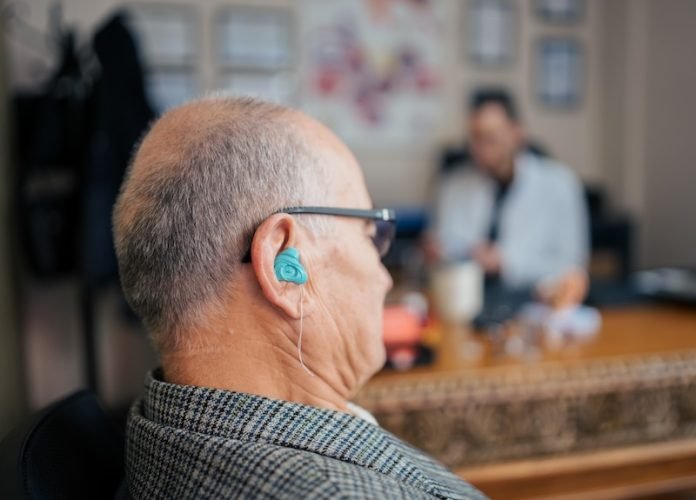
A groundbreaking study by medical researchers in Denmark has uncovered a potential link between hearing aids and a reduced risk of dementia in older adults.
This study, published in JAMA Otolaryngology—Head & Neck Surgery, offers new insights into how we might combat dementia, a condition that affects millions of elderly people worldwide.
For some time, scientists have suspected a connection between hearing difficulties in older adults and the development of dementia.
Gradual hearing loss, a common issue among the elderly, has been considered a possible risk factor for various types of dementia. However, the nature of this link remains somewhat unclear, and researchers are keen to explore it further.
In this latest study, the team from Denmark turned to the Hearing Examinations in Southern Denmark database for answers.
This extensive database monitors the hearing health of people living in southern Denmark, covering around 573,088 individuals aged 50 and above. The data spans from 2003 to 2017, offering a rich source of information for analysis.
Upon examining the database, the researchers focused on finding any associations between hearing loss and the development of dementia. What they discovered was significant.
Older adults with hearing loss who didn’t use hearing aids were found to be 20% more likely to develop dementia compared to those with normal hearing.
Intriguingly, those with hearing loss who did use hearing aids had only a 6% increased risk of developing dementia, almost aligning with the average risk for those without hearing loss.
This finding is particularly compelling as it suggests that using hearing aids might play a role in reducing the risk of dementia among the elderly with hearing difficulties.
It’s important to note, however, that the study doesn’t conclusively prove that hearing aids can prevent dementia. Instead, it highlights the need for further research to explore this promising possibility.
The implications of this study are far-reaching. Dementia profoundly impacts the lives of millions of elderly individuals and their families.
Discovering effective ways to reduce the risk of dementia is a critical goal for healthcare providers and researchers. This study suggests that addressing hearing loss with aids might be a step in the right direction.
As research continues in this area, there’s hope that we might better understand and potentially mitigate some of the risk factors for dementia.
For now, this study offers an encouraging perspective on the benefits of hearing aids, not just for improved hearing, but potentially for better cognitive health in our later years.
If you care about dementia, please read studies about low choline intake linked to higher dementia risk, and how eating nuts can affect your cognitive ability.
For more information about brain health, please see recent studies that blueberry supplements may prevent cognitive decline, and results showing higher magnesium intake could help benefit brain health.
The research findings can be found in JAMA Otolaryngology–Head & Neck Surgery.
Copyright © 2023 Knowridge Science Report. All rights reserved.



